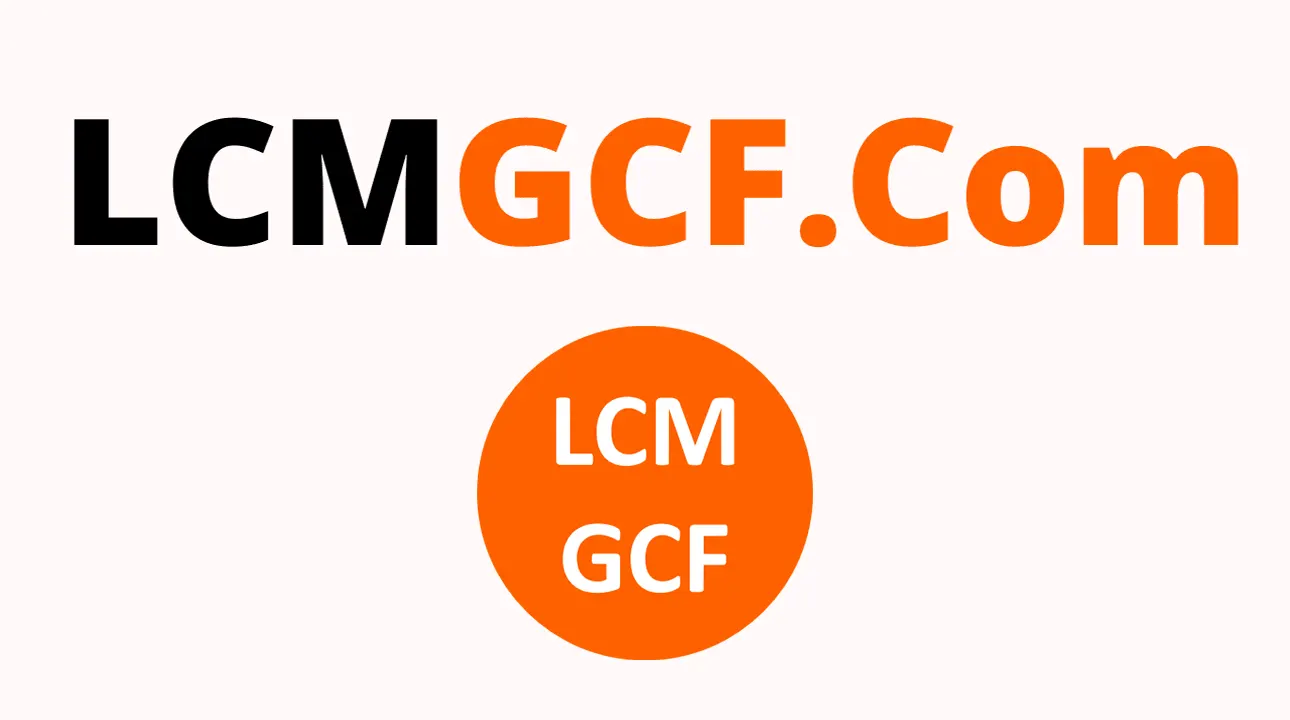Least Common Multiple of 48, 444, 734
Created By : Jatin Gogia
Reviewed By : Rajasekhar Valipishetty
Last Updated : Apr 06, 2023
Use the LCM of two or more numbers Calculator to find the Least Common Multiple of numbers 48, 444, 734 i.e. 651792 smallest integer divisible by all numbers.
Least common multiple (LCM) of 48, 444, 734 is 651792.
LCM(48, 444, 734) = 651792
LCM of 48, 444, 734
Least common multiple or lowest common denominator (lcd) can be calculated in three ways
- Least Common Multiple of 48, 444, 734 by common division method
- Least Common Multiple of 48, 444, 734 with GCF Formula

Least Common Multiple (LCM) of 48,444,734 is 651792
| 2 | 48, 444, 734 |
| 2 | 24, 222, 367 |
| 3 | 12, 111, 367 |
| 4, 37, 367 |
∴ So the LCM of the given numbers is 2 x 2 x 3 x 4 x 37 x 367 = 651792
The formula of LCM is LCM(a1,a2,a3....,an) = ( a1 × a2 × a3 × .... × an) / GCF(a1,a2,a3....,an) x common factors(if more than 2 numbers have common factors).
We need to calculate greatest common factor of 48,444,734 and common factors if more than two numbers have common factor, than apply into the LCM equation.
GCF(48,444,734) = 2
common factors(in case of two or more numbers have common factors) = 12
GCF(48,444,734) x common factors =2 x 12 = 24
LCM(48,444,734) = ( 48 × 444 × 734 ) / 24
LCM(48,444,734) = 15643008 / 24
LCM(48,444,734) = 651792
∴ Least Common Multiple of 48,444,734 is 651792
LCM of two or more Numbers Calculation Examples
Here are some samples of LCM of two or more Numbers calculations.
Frequently Asked Questions on LCM of 48, 444, 734
1. What is the LCM of 48, 444, 734?
Answer: LCM of 48, 444, 734 is 651792.
2. What are the Factors of 651792?
Answer: Factors of 651792 are . There are integers that are factors of 651792
3. How to Find the LCM of 48, 444, 734 ?
Least Common Multiple of 48, 444, 734.
Step 1: Divide all the numbers with common prime numbers having remainder zero.
Step 2: Then multiply all the prime factors with last row quotient of common division that is LCM(48, 444, 734) = 2 x 2 x 2 x 2 x 3 x 37 x 367 = 651792.